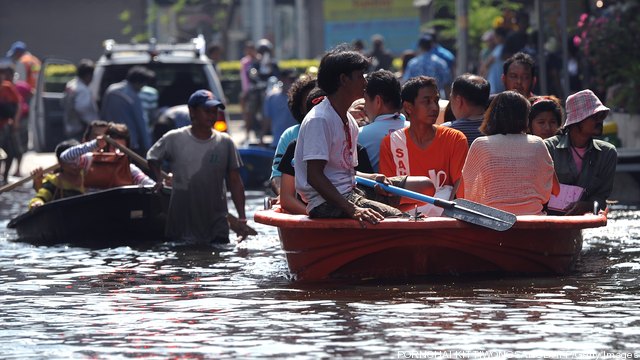
The potential for climbing costs in reacting to climate change are looking more and more bleak and it may be time for leaders outside the environmental community to do something about it, business leaders on a Ceres-sponsored call said on Friday.
The meeting was purposefully scheduled to start six hours after the release of a United Nations-sponsored Intergovernmental Panel report on climate change in Uganda. It warned global leaders that climate change is real and could have disastrous environmental and economics impacts.
“In the last few years, weather related events have multiplied by five,” said Swiss Re’s Senior Vice President and Head of Sustainability Americas Mark Way. He said that as insurance companies shelled out more money due to natural disaster events, premiums would increase.
He said Swiss Re has been working with Oxfam and other global hunger and poverty organizations to devise an insurance system that protects the world’s most vulnerable from the disastrous losses projected to come from climate change.
Ceres President Mindy Lubber emphasized that climate change would hurt everyone and it was therefore in everyone’s interests to do something about it.
“The cost of these extreme weather events will keep ballooning. Cost as well as human impact will be profound,” she said.
Cost Escalation
David Friedberg, founder and CEO of The Climate Corporation, agreed that as insurance premiums rise throughout the supply chain, commodity prices will rise, ultimately snowballing expenses.
“Because we are insuring our customers against extreme weather events, we model our services based on probability of events occurring,” he said. “We’ve charged more over the last two seasons than we have historically.”
Lubber cited the recent Hurricane Irene, which some attribute to climate change, that caused over $7 billion in damages across the economy.
“The costs are being driven to all the parts of our economy,” she said. She said it was time for business leaders, not only environmental leaders, to call for real change.
“Because that’s what we need in our capital markets to mitigate this risk,” she said.
“The lending community has not moved in a coherent fashion,” said Ceres’ Senior Manager of the Insurance Program Sharlene Leurig. But, she said, rating agency Standard & Poor’s has begun incorporating “carbon intensity [of] operations into their credit ratings, including energy companies and airlines.”
It is a “clear symbol of how the investment community is beginning to incorporate [carbon intensity issues].”
Photo Caption: Thai people commute through floodwaters in Bangkok on November 18, 2011. At least 562 people have been killed across the country in Thailand’s worst floods in half a century, which have inundated parts of the capital.
